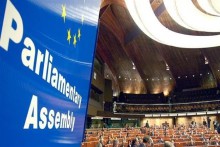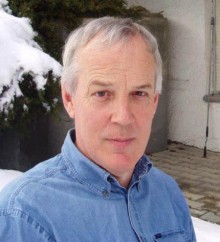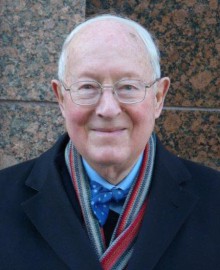EDITORS’ NOTE
Russian media refused to publish this article. This is another confirmation of the fact that Vladimir Putin’s Russia lacks the freedom of speech. Belgian analysts who provide reasons why they see continued Russian membership in the Council of Europe as impossible turned to longtime friend of The Day, Senior Fellow at the Brookings Institution Lilia Shevtsova to facilitate publication. Co-author of the article Michel Waelbroeck said: “The publication of this article on the Russian membership’s impossibility is important, given the fact that the Council of Europe will discuss the issue of Russia’s membership again on January 25. And that is why it is highly important for this article to be published in Russian.”
Let us recall that the Russian delegation decided not to participate in the January session of the Parliamentary Assembly of the Council of Europe (PACE) in Strasbourg, to be held on January 25. First deputy head of the delegation Leonid Slutsky stated that “we are now sending a letter to PACE President Anne Brasseur. The letter is signed by speakers of both chambers of the Russian parliament and reads that the request for powers of the Russian delegation in 2016 will be forwarded there later. We are going to skip the January session.”
Let us recall that the PACE deprived the Russian delegation of the right to vote and banned it from participating in the Assembly’s ruling bodies and monitoring missions due to the annexation of Crimea and the situation in eastern Ukraine. In 2015, these restrictive measures were confirmed for another year by members of the Assembly.
By Willem ALDERSHOFF, Michel WAELBROECK
For the third year in a row Russia’s membership in the Council of Europe will be discussed by its Parliamentary Assembly shortly. The Strasbourg-based organization was established in 1947 in order to promote human rights and democratic rule of law in Europe. Russia is one of the Council’s 47 members, who have all committed to apply these principles. The Council’s founding treaty also provides that serious violations of democratic principles by member countries can lead to a loss of voting rights and even to a loss of membership.
In 1989 the Council introduced the status of “Special Guest” for countries which want to join but do not yet fulfill all necessary conditions. Belarus was accepted under this heading, but lost it in 1997 because of human rights violations. Despite repeated requests Kazakhstan never received this status, also on human rights grounds.
After four years of “Special Guest” status Russia became a full member in 1996. At that time there was still a hope that it would evolve in a democratic direction. Numerous observers, however, felt that it would have been wiser to wait until Russia’s democratic reforms had become irreversible.
Developments in Russia since then show that these doubts were justified. Already towards the end of Boris Yeltsin’s presidency, little was left of the democratic advances that had been made. Under his successor Vladimir Putin the situation deteriorated dramatically, to the point where Russia has today become an autocratic kleptocracy where a small clique around the president enrich themselves at the expense of normal Russians. For years there have been no free and fair elections, the Kremlin controls the courts and the media, the political opposition is being harshly oppressed and corruption is rampant.
Around 2010 it had already become evident that Russia no longer fulfilled the conditions for membership of the Council of Europe. Surprisingly this did not give rise to any reaction at the time. The Council only came into action in 2014 after Russia’s military annexation of Crimea and its armed intervention in eastern Ukraine. It temporarily revoked Russia’s voting right in the Parliamentary Assembly and its representation in a number of other organs, but not in the all-important Committee of Ministers.
Such a modest counter-measure is not in proportion with Russia’s massive and serious violations of the Council’s most fundamental principles. The need for a stronger reaction has become even more urgent with Russia’s adoption of a law past December empowering its Constitutional Court to decide that rulings by international courts, including the Council’s own Court of Human Rights, should not be recognized in Russia.
A more direct attack against all that the Council of Europe stands for is not conceivable. The Court’s role is to rule on citizens’ complaints against human rights violations by member countries’ authorities. It is the only way citizens can exercise some influence on the human rights situation. As a signatory of the European Convention for Human Rights Russia is bound to apply the Court’s judgments. This, however, does not suit the Kremlin, since numerous complaints by Russian citizens have resulted in condemnations by the Strasbourg court. Moscow became really livid when the Court ruled in July 2014 that the Russian state must pay 1.87 billion euros to the former owners of the defunct Russian oil company Yukos.
Such a reaction is long overdue. Indeed, other countries are following in Russia’s footsteps. The former Soviet republics of Azerbaijan and Armenia score extremely poorly in the areas of civil freedoms, political rights, independence of the judiciary and press freedom. Recently the prime minister of Montenegro, the last country to join the Council, received the award of Organized Crime and Corruption “Person of the Year” by the Organized Crime and Corruption Reporting Project. Questions can also be asked regarding the membership of Albania, Bosnia and Herzegovina, and Macedonia. And then there is Turkey, gradually sliding away from the democratic principles it has pledged to uphold. Alarming as well are the serious media reports about countries like Russia and Azerbaijan trying to corrupt the organization from within by buying votes and hiring highly paid lobbyists to minimize their human-rights records.
For a long time, well-regarded human rights organizations such as “Human Rights Watch” and “Amnesty International” have been warning about the risk that the Council of Europe would lose its credibility as promoter of human rights and the rule of law. This is bound to occur if the Council does not exclude members, such as Russia, that grossly violate its most fundamental principles.
Willem Aldershoff is former Head of Unit, European Commission, analyst international affairs, Brussels
Michel Waelbroeck is emeritus professor of European Law, Universite Libre de Bruxelles, emeritus member of the Institute of International Law









